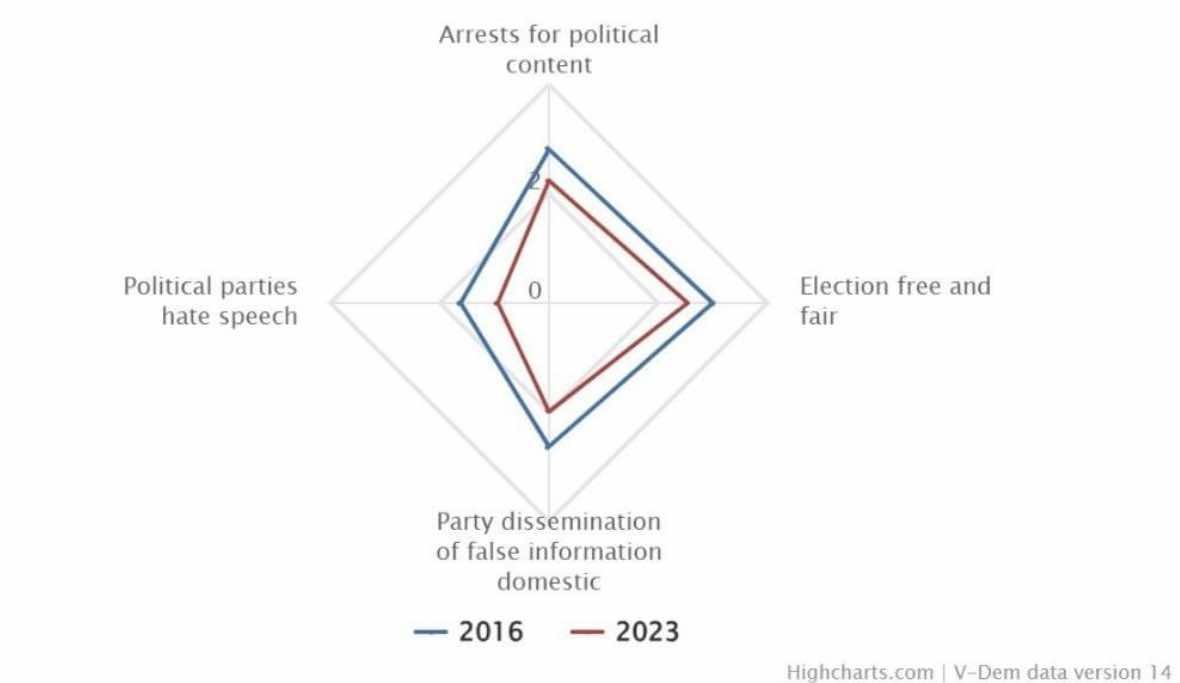


According to V-Dem Institute evaluations, Georgia’s 2024 parliamentary elections, conducted with critical flaws and followed by the government’s failure to ensure an objective investigation of all violations, could potentially lead to Georgia being classified as autocratic.
The V-Dem Institute, based at University of Gothenburg department of political science, annually publishes data that allows for the assessment of the quality of democracy in countries across the globe. For this purpose, V-Dem relies on its vast data repository, which includes 60 indices and nearly 500 indicators. The reliability and quality of the gathered data is recognized internationally.
2024 V-Dem Institute report, published before the October elections, had already indicated a deterioration in various areas in Georgia. The report pointed primarily to electoral processes of the previous years as one of the main reasons for the decline of the quality of democracy in the country. The report still classified Georgia as an electoral democracy; however, Georgia was among the 25 countries where the quality of democracy has significantly and consistently declined in recent years. These countries are referred to in the study as “near misses of autocratization,” indicating that if the trend of decline continues, they could be classified as autocratic regimes. One measure of this trend is the elections held this year in some of these countries, which the study labels as “critical events.”
While monitoring Georgia’s 2024 elections and the pre-election process, the V-Dem Institute identified a decline in four indicators of democracy since 2016.

- Elections free and fair: the indicator answers the question — Considering the pre-election period, the election itself, and the post-election events, would you assess this election as free and fair? According to V-Dem Institute, flaws in the electoral process, such as concerns over voter intimidation, infringe on electoral freedom and fairness.
- Political parties hate speech: the indicator answers the question — How often do major political parties use hate speech in their rhetoric? According to the report, Prime Minister Kobakhidze labeling the opposition as ‘criminal political forces‘ and threatening to ban opposition parties shows the coarsening of political discourse.
- Part dissemination of false information domestic: the indicator answers the question — How often do representatives of major political parties use social media to share disinformation and misleading information? According to the report, the defamation of pro-democracy protesters and civil society actors as foreign agents show the disinformation tactics of government actors.
- Arrests for political content: the indicator answers the question — If a citizen shares an online post with political content that is critical of government policies, what is the likelihood that this citizen will be arrested? The report notes that civic activists expressing dissent increasingly face political arrests and charges. These tensions constitute risks to electoral integrity.
Based on these four additional trends of deterioration, the V-Dem Institute notes that Georgia could soon be classified as an autocratic regime at this pace. A more in-depth analysis of this year’s events will be available in the 2025 report of the study.